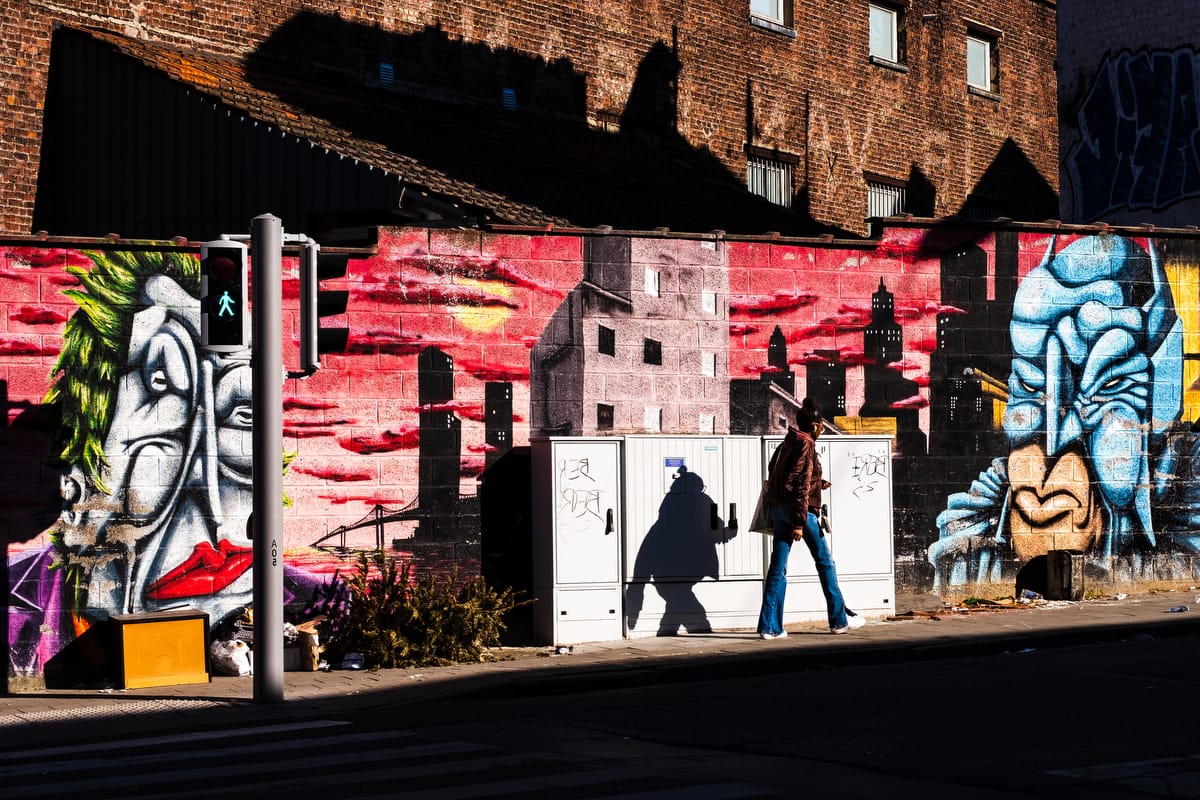Safety
Feeling at home starts with feeling safe.


What does Vooruit.brussels want?
A city ‘for the many, not the few.’ Vooruit.brussels stands for a comprehensive approach to safety. With the Minister-President of the Brussels Capital Region at the helm.
Leadership and central command
- Command lies with the Minister-President, who represents Brussels to the federal government. This is vital when it concerns issues that exceed the capacity of the local police (drugs issue, arms trafficking, terrorism, human trafficking, organised house burglary and other property crimes).
- More strength for the regional security service Brussels under the leadership of the High Officer as well as further expansion of the crisis centre. In major crises, overview and central control are crucial. Consider the attack on three Swedish football supporters on 16/10/23, where the safe.brussels crisis centre proved particularly useful.
- Bringing together six police zones into a single zone chaired by the Minister-President.
Local police close to the citizens
- To ensure safety, repression is needed. Offenders must be punished. At the same time, prevention is needed through proximity policing. They are the eyes and ears of the neighbourhood.
- Neighbourhood officers on foot and on bicycles, LISAs (Local Integrated Security Antennas) per neighbourhood (= easily accessible services).
- More diversity in the police force, for instance through pre-training for Brussels youth. Also make it possible for candidates to obtain their drivers' licence during their training. Not having a drivers' licence is a barrier. Many young people in Brussels do not have one and obtaining one is expensive.
- Work on professional profiling. Stop ethnic profiling. When certain groups are repeatedly targeted without good arguments, confidence in law enforcement decreases.
- A clear and uniform protocol to notify family members when there is a casualty in a police action. One single protocol for all police zones (pending the achievement of one police zone).
- Uniform policy on the use of 'bodycams' and better training on this topic, as there is currently too little knowledge.
- Update of the KUL standard for more local officers. The standard dates from 1999, the number of inhabitants of the Brussels Region increased by a third, while the number of police officers did not keep up.
Reinforcement of prosecutor's office and chain approach
- Reinforcement prosecutor's office (because understaffed) and chain approach: sentences must also be executed, otherwise impunity prevails.
- Criminals should not be left unpunished. We must develop meaningful detention and provide aftercare, because one day people will be released again.
Paradigm shift on drugs
- Not seeing a substance user as a criminal, but as a person with an addiction who needs healthcare = saving work for prosecutors and police forces.
- Multiple-risk reduction drug user spaces like GATE (Brussels' first drug user space).
- We also set up small-scale and decentralised drug user spaces in places where public drug use is frequent. We start with a mobile risk-reducing drug user space that can move to problem areas.
- We focus on the criminals who make money from drug trafficking.
Traffic safety
- Zero tolerance for street racers and speeders.
- General direction for ANPR cameras and other public security cameras.
Fight against (sexual) harassment and intra-family violence
- One strong initiative around nightlife safety instead of today's separate and fragmented systems.
- More housing solutions for victims of domestic violence (women, youth LGBTQIA+ who are not safe at home).
- Safe design of public space as a place for all for greater social safety.
- Adequate attention and care for victims from the moment they complain to the police.
- Enlist pharmacists to report intra-family violence (as during the corona pandemic).